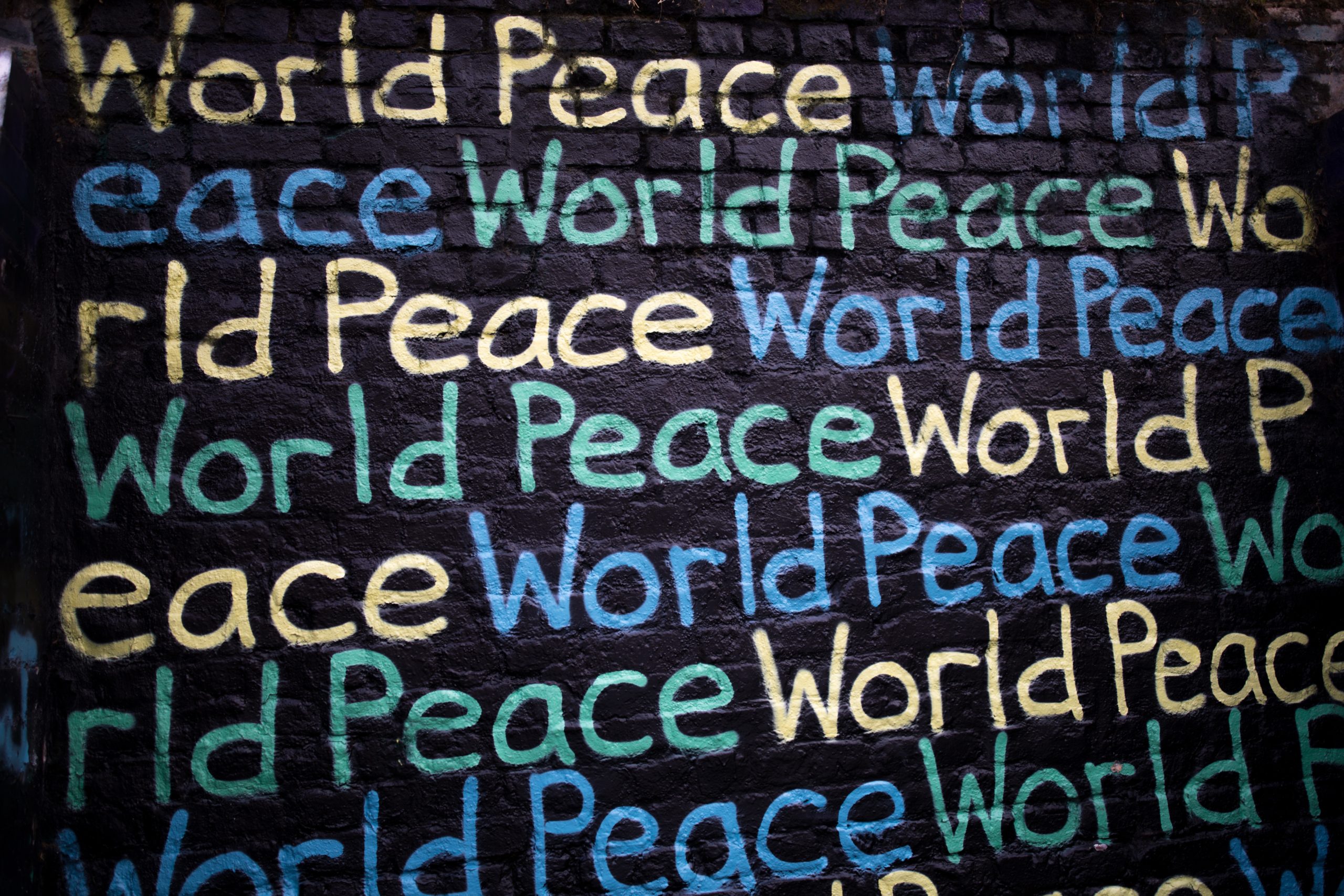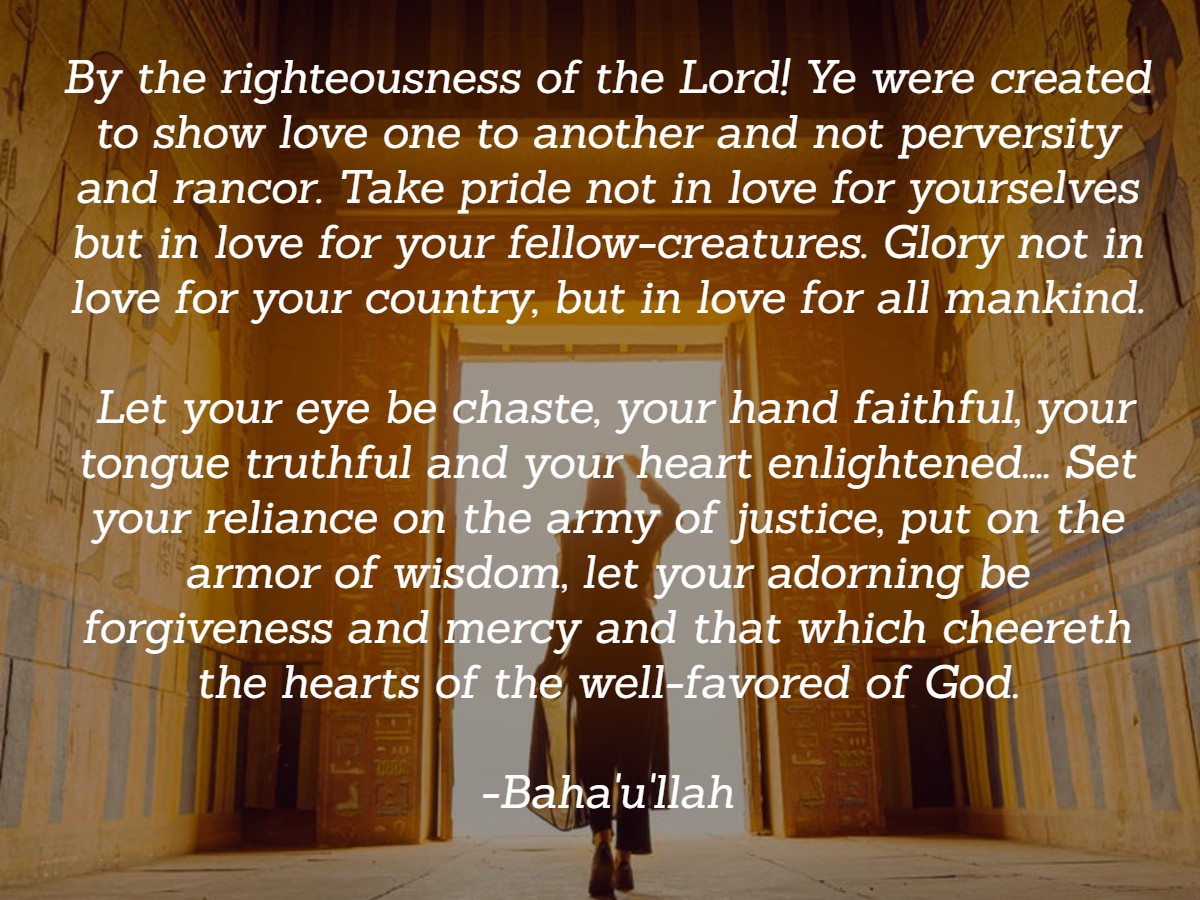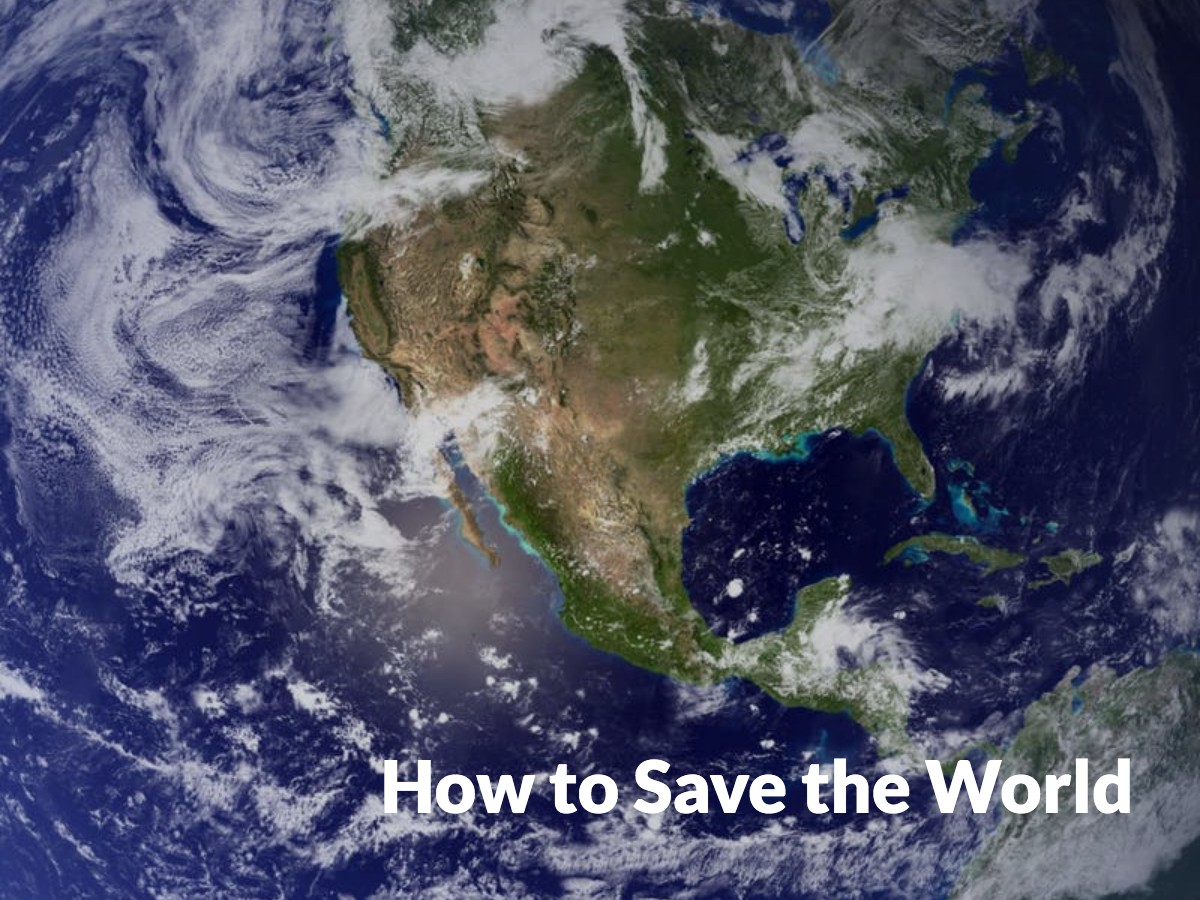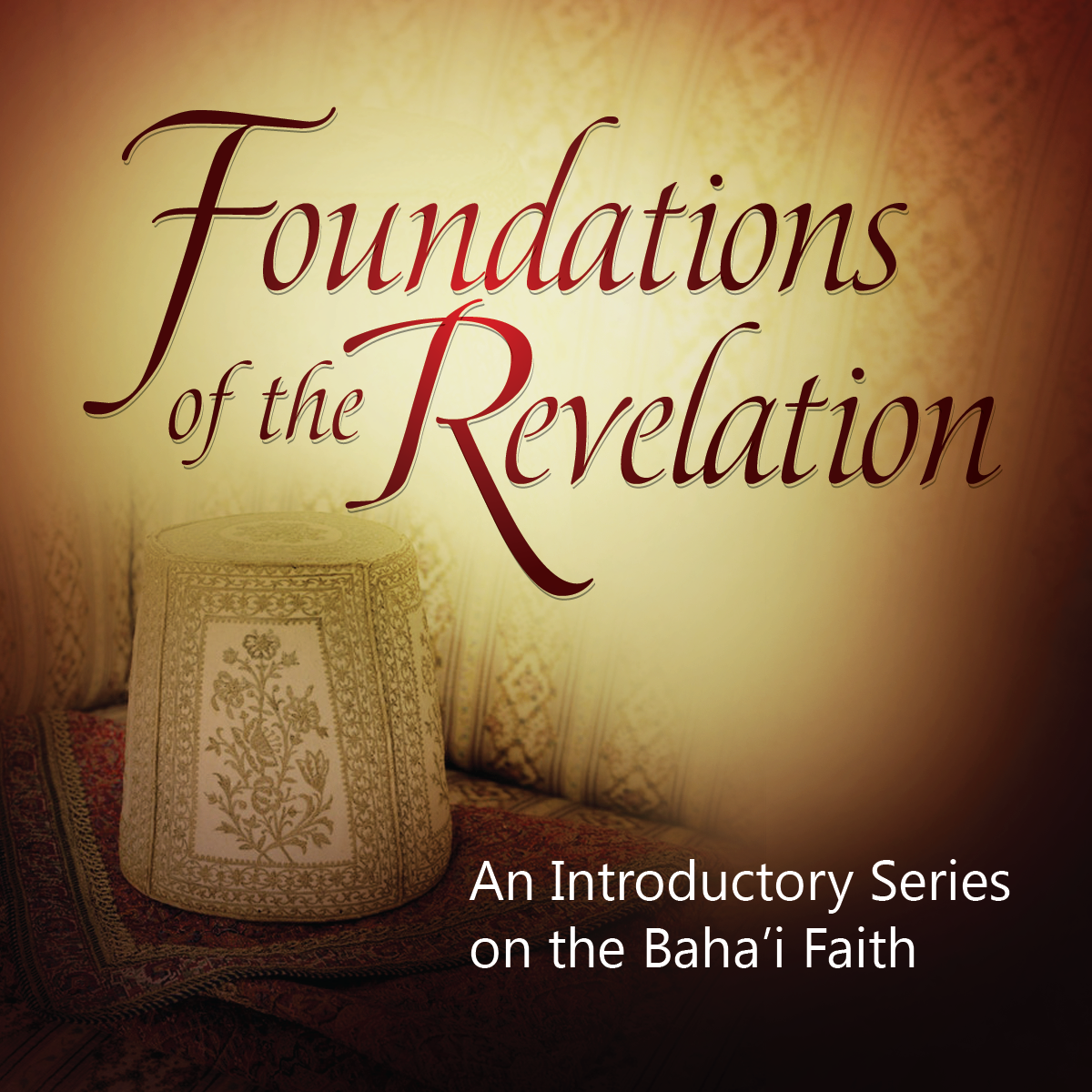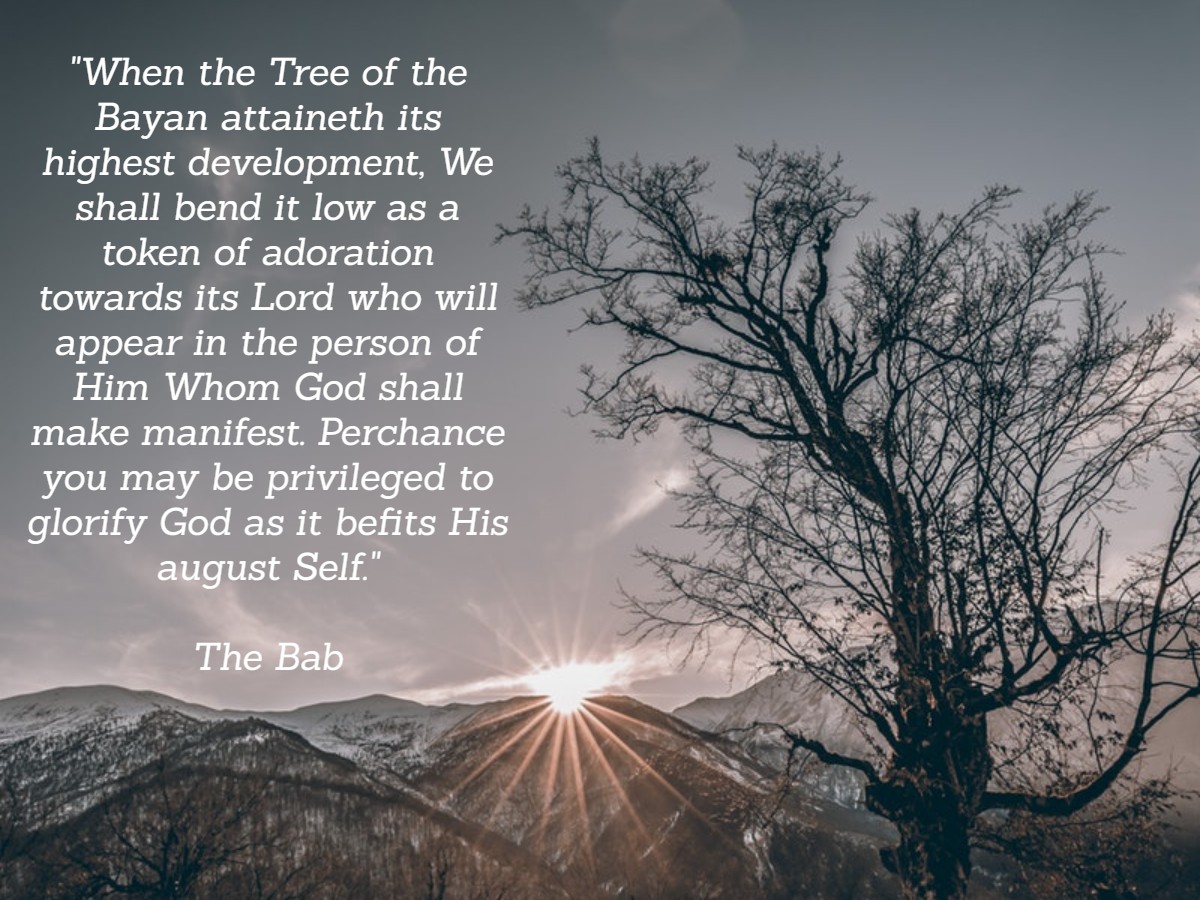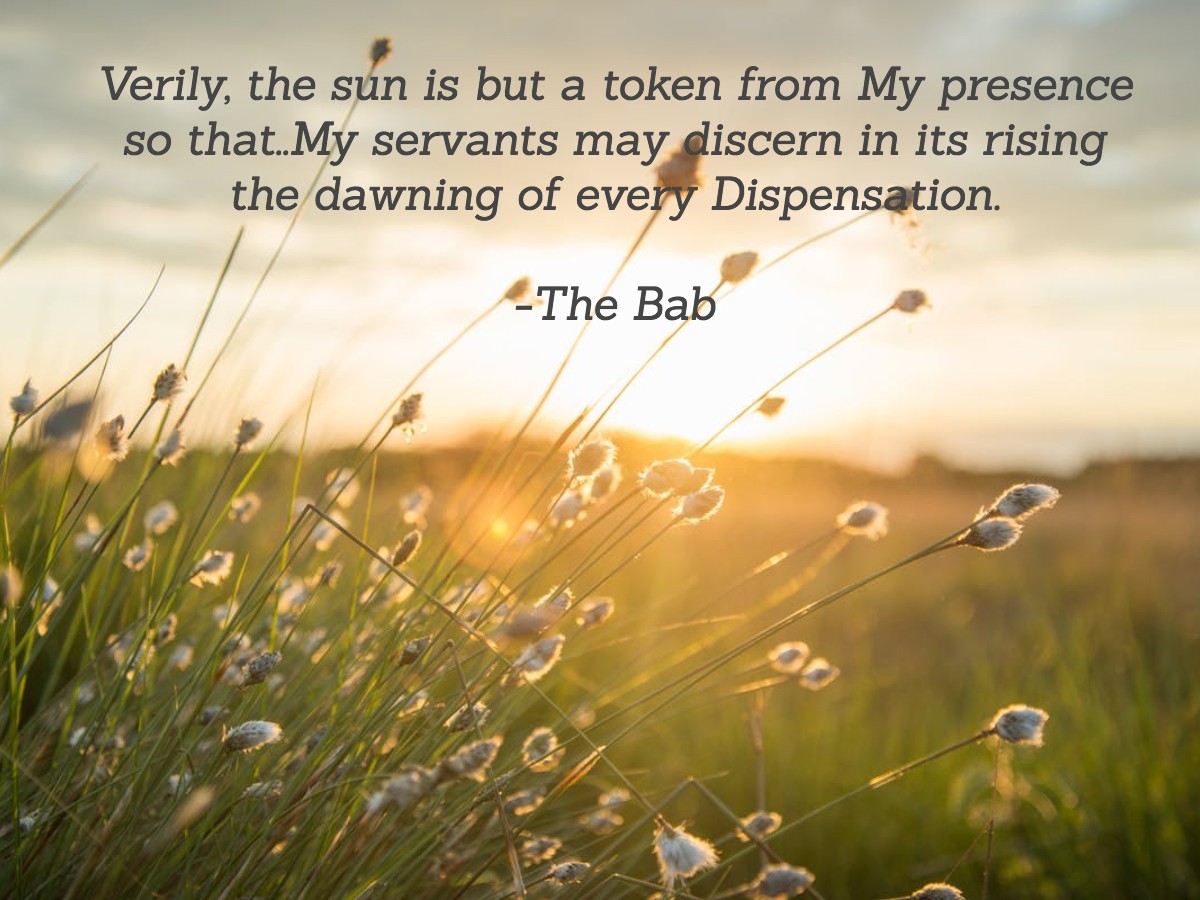“How to Save the World” Series
In October of 1985, the international governing body of the Baha’i Faith addressed a statement to the “people of the world” called the “Promise of World Peace”. The statement started off with this remarkable statement-
The Great Peace towards which people of goodwill throughout the centuries have inclined their hearts, of which seers and poets for countless generations have expressed their vision, and for which from age to age the sacred scriptures of mankind have constantly held the promise, is now at long last within the reach of the nations. For the first time in history it is possible for everyone to view the entire planet, with all its myriad diversified peoples, in one perspective. World peace is not only possible but inevitable.
The House of Justice then went on to explain the source of their optimism, describing the unique place our generation occupies in history. Because of the increasing technological advances and the fact that the process of building nations and fixing national borders was largely over, we are now at the stage where the next step in our social development is world unity. They told us that humanity faced a choice- to come together as one human family and make decisions that benefitted the whole human race- “as an act of consultative will”- or we would likely face “unimaginable horrors” because we clung to “old patterns of behavior”.
But what are those “old patterns of behavior” that are threatening our very existence? What are the new patterns of behavior that we need to adopt? This series is intended to explore those questions. The primary point to be emphasized however is that our generation- our time in history- is incredibly unique. We are transitioning from a world in which people were largely separate from each other to one that is interdependent. Dealing with that reality requires that we re-think how we have historically done things, and establish new patterns that are more fitting to the modern age.
The Peace statement makes clear a point that is implicit in all of Baha’u’llah’s teaching- a higher degree of unity requires a higher degree of virtue. Baha’u’llah taught that the primary purpose of religion is to promote unity and virtue. Religion- true religion- the religion that causes people to “act justly, love mercy, and walk humbly with your Lord”. Religion that recognizes the truth and value of all the great revelations of the past, but also challenges us not to be stuck in the past. Religion that embraces and honors science. Religion that promotes fairness and reasonableness. Religion that reflects the best of what a human being can be.
It’s impossible to separate Baha’u’llah’s vision of societal change without also capturing the fact that He sought a transformation that started within humans and then proceeded outwards. Even His laws should be obeyed “for the love of My beauty”, and not as a “mere code of laws”. Baha’u’llah didn’t speak to autonomous units of exchange- “human capital”- or various other forms of “human statistics”. He spoke to human hearts and offered to lift them up to heights of unimaginable beauty.
In the series- “How to Save the World”- we will use the “Promise of World Peace” as a template to discuss the various social teachings that are Baha’u’llah’s prescription to solve the vital problems at our time in history. The entire statement can be found here. It is informed by this famous quote of the Blessed Beauty himself.
“The All-Knowing Physician hath His finger on the pulse of mankind. He perceiveth the disease, and prescribeth, in His unerring wisdom, the remedy. Every age hath its own problem, and every soul its particular aspiration. The remedy the world needeth in its present day afflication can never be the same as that which a subsequent age may require. Be anxiously concerned with the age in which ye live in, and center your energies on its exigencies and requirements.”P
